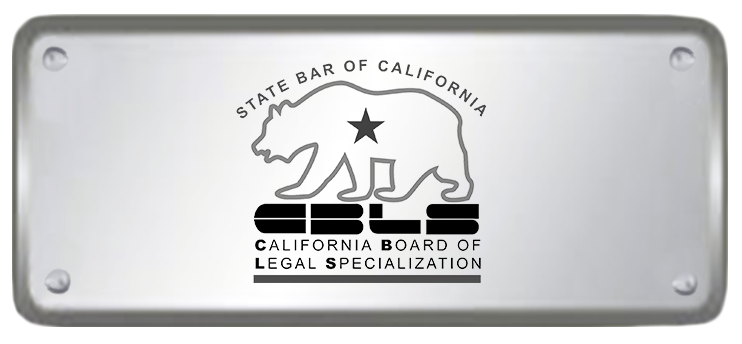MILITARY DIVORCE IN CALIFORNIA
Military divorce and family law issues require an understanding of both the civilian and military worlds and how those two intersect, particularly as it relates to deployments, SCRA, taxable and non-taxable income, military retirement, disability, and benefits. This is equally true for both active duty and retired military personnel, as well as their spouses and dependents. Having our home “base” in San Diego puts Antonyan Miranda squarely into one of the largest military communities in the world. We are highly experienced at helping servicemembers of all branches and all ranks navigate their way through the family law maze, and we do so with pride.
How Do Military Divorces Work in California?
Divorce can be challenging for anyone, but it can be particularly complicated for military service- members and their spouses. Various factors can make military divorce different from civilian divorce, including jurisdiction, division of military benefits, and child custody and support. If you are a service member or a military spouse and are getting divorced in California, it is important to understand what to expect and how to protect your rights and interests. You need an experienced attorney who has worked with many military clients. At Antonyan Miranda, we are here to guide you through the process and help you achieve a favorable outcome.
Jurisdiction and Residency Requirements in Military Divorce
One of the first things to consider in a military divorce is jurisdiction. Typically, jurisdiction in divorce cases is determined by the residency of the parties. In California, either spouse must have lived in the state for at least six months and in the county where the divorce is filed for at least three months to establish jurisdiction. However, military members and their spouses may have additional jurisdiction options.
For example, under the Servicemembers Civil Relief Act (SCRA), military members can maintain their legal residence in their home state even if they are duty stationed in another state. This means that if you are a military member stationed in California but you are a legal resident of another state, you may be able to file for divorce in your home state instead of California. Alternatively, if your spouse is a legal resident of another state, they may be able to file for divorce in that state instead of California.
Division of Military Benefits
The division of military benefits can also be a complicated issue in military divorce cases. Servicemembers and their spouses may be entitled to a range of military benefits, including pensions and disability. These benefits can be valuable assets that may need to be divided as part of the divorce settlement.
In California, military pensions are treated as community property, which means that they are subject to division in divorce. This can be particularly complicated in cases where the service member has been in the military for many years and has accrued a significant pension. The Uniformed Services Former Spouses’ Protection Act (USFSPA) provides guidelines for the division of military pensions in divorce cases.
Under the USFSPA, the court may award a former spouse up to 50% of the servicemember’s disposable retirement pay. Disposable retirement pay is the servicemember’s gross retirement pay minus certain deductions, such as taxes and the cost of the Survivor Benefit Plan. It is important to note that the USFSPA does not automatically entitle a former spouse to a share of the military pension; the court must make a specific order for the division of the pension.
Child Custody and Support in Military Divorce
Military service can impact child custody and support in various ways. For example, if a service member is deployed or stationed overseas, it will be more difficult for them to maintain any regular child visitation. In California, if a parent is deployed and, therefore, an existing child custody and visitation order must be modified, the modification is without prejudice to the deploying servicemember. Further, there is a presumption that the preexisting custody order that was modified must be reinstated upon return from deployment.
Additionally, child support calculations may be affected by the servicemember’s income, which can vary depending on their rank, BAH, BAS, and other benefits. Also, before the California court makes child support orders, it is not uncommon for the spouse to request support from the servicemember’s command via MILPERSMAN. It is important to work with an experienced military divorce attorney who understands how to accurately calculate child support and ensure that your child’s needs are properly addressed.
Protecting Your Rights as a Military Servicemember
As a military service member, you have certain rights and protections that must be taken into account during the divorce process. For example, under the Soldiers and Sailors Civil Relief Act (SCRA), military members may be entitled to a stay of court proceedings if they are unable to appear in court due to their military service. The SCRA also provides certain protections against default judgments for service members who are unable to respond to legal action due to their military service.
It is critical that you have an experienced attorney participating and supporting you through your military divorce process. Call Antonyan Miranda at 619-696-1100 to speak with one of our Concierge attorneys, or visit us at www.expertdivorcelaw.com for more information.
FOLLOW US!
MILITARY DIVORCE IN CALIFORNIA
Military divorce and family law issues require an understanding of both the civilian and military worlds and how those two intersect, particularly as it relates to deployments, SCRA, taxable and non-taxable income, military retirement, disability, and benefits. This is equally true for both active duty and retired military personnel, as well as their spouses and dependents. Having our home “base” in San Diego puts Antonyan Miranda squarely into one of the largest military communities in the world. We are highly experienced at helping servicemembers of all branches and all ranks navigate their way through the family law maze, and we do so with pride.
How Do Military Divorces Work in California?
Divorce can be challenging for anyone, but it can be particularly complicated for military service- members and their spouses. Various factors can make military divorce different from civilian divorce, including jurisdiction, division of military benefits, and child custody and support. If you are a service member or a military spouse and are getting divorced in California, it is important to understand what to expect and how to protect your rights and interests. You need an experienced attorney who has worked with many military clients. At Antonyan Miranda, we are here to guide you through the process and help you achieve a favorable outcome.
Jurisdiction and Residency Requirements in Military Divorce
One of the first things to consider in a military divorce is jurisdiction. Typically, jurisdiction in divorce cases is determined by the residency of the parties. In California, either spouse must have lived in the state for at least six months and in the county where the divorce is filed for at least three months to establish jurisdiction. However, military members and their spouses may have additional jurisdiction options.
For example, under the Servicemembers Civil Relief Act (SCRA), military members can maintain their legal residence in their home state even if they are duty stationed in another state. This means that if you are a military member stationed in California but you are a legal resident of another state, you may be able to file for divorce in your home state instead of California. Alternatively, if your spouse is a legal resident of another state, they may be able to file for divorce in that state instead of California.
Division of Military Benefits
The division of military benefits can also be a complicated issue in military divorce cases. Servicemembers and their spouses may be entitled to a range of military benefits, including pensions and disability. These benefits can be valuable assets that may need to be divided as part of the divorce settlement.
In California, military pensions are treated as community property, which means that they are subject to division in divorce. This can be particularly complicated in cases where the service member has been in the military for many years and has accrued a significant pension. The Uniformed Services Former Spouses’ Protection Act (USFSPA) provides guidelines for the division of military pensions in divorce cases.
Under the USFSPA, the court may award a former spouse up to 50% of the servicemember’s disposable retirement pay. Disposable retirement pay is the servicemember’s gross retirement pay minus certain deductions, such as taxes and the cost of the Survivor Benefit Plan. It is important to note that the USFSPA does not automatically entitle a former spouse to a share of the military pension; the court must make a specific order for the division of the pension.
Child Custody and Support in Military Divorce
Military service can impact child custody and support in various ways. For example, if a service member is deployed or stationed overseas, it will be more difficult for them to maintain any regular child visitation. In California, if a parent is deployed and, therefore, an existing child custody and visitation order must be modified, the modification is without prejudice to the deploying servicemember. Further, there is a presumption that the preexisting custody order that was modified must be reinstated upon return from deployment.
Additionally, child support calculations may be affected by the servicemember’s income, which can vary depending on their rank, BAH, BAS, and other benefits. Also, before the California court makes child support orders, it is not uncommon for the spouse to request support from the servicemember’s command via MILPERSMAN. It is important to work with an experienced military divorce attorney who understands how to accurately calculate child support and ensure that your child’s needs are properly addressed.
Protecting Your Rights as a Military Servicemember
As a military service member, you have certain rights and protections that must be taken into account during the divorce process. For example, under the Soldiers and Sailors Civil Relief Act (SCRA), military members may be entitled to a stay of court proceedings if they are unable to appear in court due to their military service. The SCRA also provides certain protections against default judgments for service members who are unable to respond to legal action due to their military service.
It is critical that you have an experienced attorney participating and supporting you through your military divorce process. Call Antonyan Miranda at 619-696-1100 to speak with one of our Concierge attorneys, or visit us at www.expertdivorcelaw.com for more information.





















